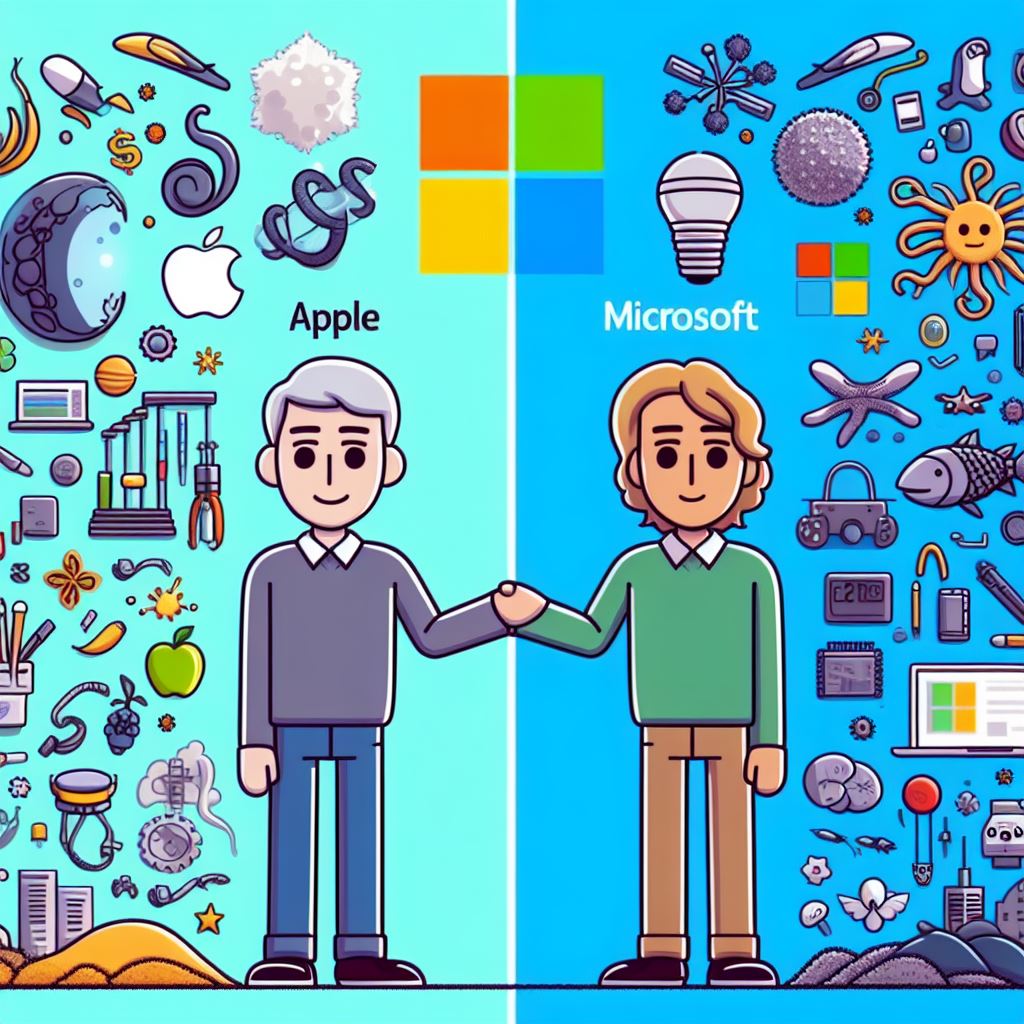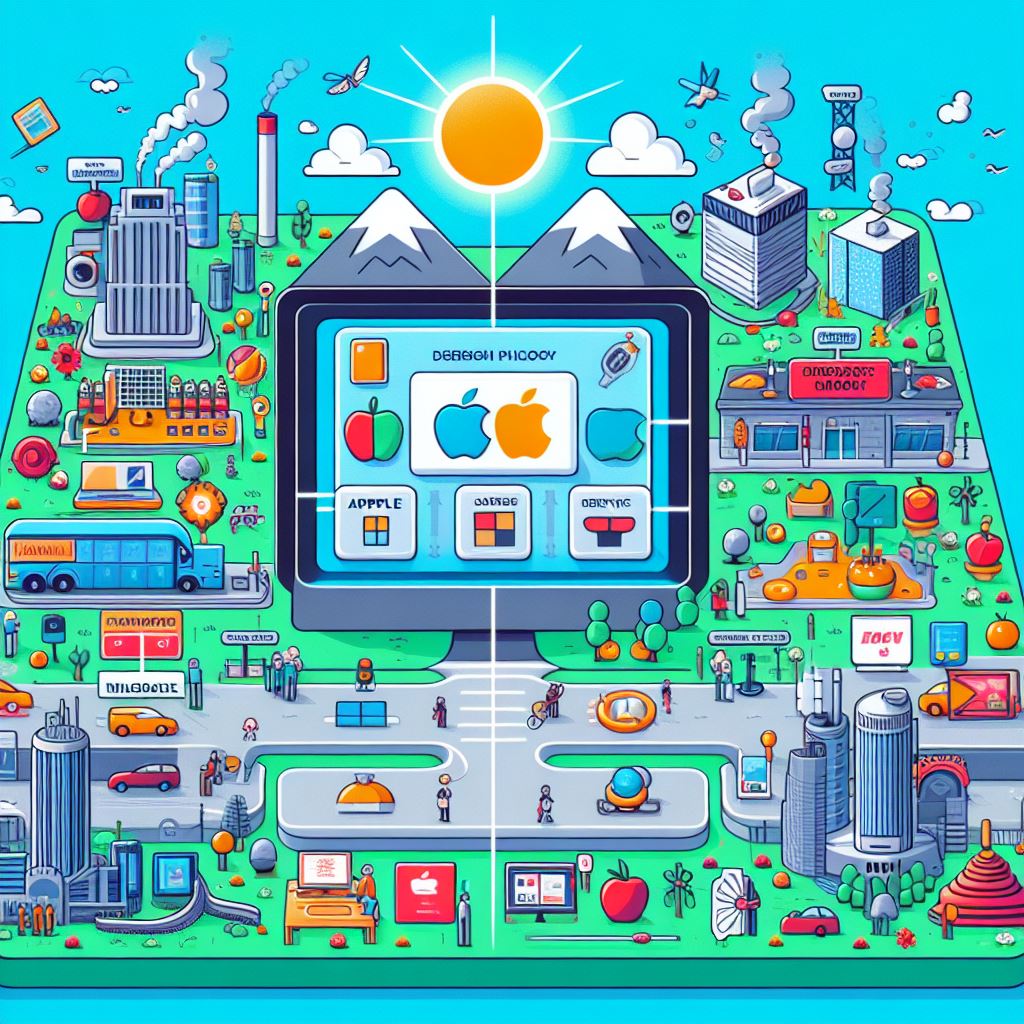Steve Jobs and Bill Gates stand out as two of the most influential figures of the personal computing era. As pioneering founders of tech giants Apple and Microsoft, their innovations launched revolutions in software, operating systems, and hardware that brought computers from research labs and corporations into the homes of billions.
However, the two technology luminaries followed remarkably different paths and held contradictory views on topics ranging from user-centric design to monopolistic business practices. This article examines their origins, leadership styles, competitive wars, and lasting impacts

Backgrounds
Jobs was born in 1955 in California and adopted by a Mountain View couple. He befriended Stephen Wozniak while still in high school, bonding over their interest in electronics and pulling pranks. Though Jobs started at Reed College in 1972, he dropped out after one semester to pursue creative paths less constrained by formal education.
Gates was born in Seattle in 1955 to a well-off family, attending the private Lakeside prep school known for its computer time-sharing system. There Gates became obsessed with programming, even writing scheduling software for the school. He later studied at Harvard but left when the opportunity arose to form Microsoft with Paul Allen in 1975, just before the dawn of personal computing revolution.
Leadership & Management
Jobs was driven, ambitious, and a perfectionist from a young age, traits only amplified by his CEO tenure guiding Apple’s success. He inspired teams through charisma and the sheer force of his vision, intuition, and taste. However, his unfiltered criticism and demanding attitude also frequently offended colleagues and early Apple employees.
Though Gates developed cutting-edge software creations in Microsoft’s early days, his leadership style leaned more to the analytic and pragmatic. At Paul Allen’s urging, Gates relocated Microsoft to Seattle which helped retain talent. While not naturally collaborative, Gates focused on hiring bright people and motivating them through efficiency and performance incentives tied to his ownership of the booming company.
Product Philosophy
Steve Jobs obsessed over melding technology with liberal arts by infusing products with elegance, experience-driven design and humanistic warmth tied closely to branding and marketing. Gates focused more on opening platforms, partnerships, and distribution channels to get Microsoft software running on every compatible device while ceding hardware innovation to partners.
This makes Microsoft's products universally compatible but often pedestrian. Meanwhile Apple’s proprietary, user-friendly experience commands premium pricing, though does not dominate market share outside phones, tablets and premium PCs. Apple’s walled garden approach similarly locks customers into their ecosystem.

Competitive Wars
Gates secured the early lead by licensing Microsoft’s DOS and Windows operating systems to run on PC hardware made by many manufacturers, which Apple could not match until switching to Intel processors in 2006. Microsoft’s new interfaces opened computing to wider audiences beyond early adopters. Unimpressed with the first Macintosh in 1985, Gates eventually responded by launching Windows and gaining a stranglehold over OS market share. Meanwhile Jobs berated Gates for bastardizing Apple’s innovations without taste. This came to a head when Apple sued Microsoft for infringing its software designs. Though Microsoft settled out of court, this marked a bitter divide between the two companies.
Later when Apple struggled financially, Microsoft invested $150 million in its rival to prevent Apple’s demise in fear of monopoly lawsuits. This touchstone deal with the longtime enemy shocked Apple loyalists including Jobs, who soon returned to lead Apple’s amazing turnaround by refining existing product lines and branching into new categories like mobiles.
As smartphones gained adoption, Apple found massive success with the iPhone and iPad establishing enduring leads in user satisfaction. Jobs famously vowed to wage "thermonuclear war" on what he saw as copycat Android platforms from Google and partners including Samsung, though market share advantage still lies with rivals producing phones across price points globally.
Leaving Legacies
While Jobs is best known for envisioning paradigm-shifting devices like the Mac, iPod, iPhone and iPad over three decades helming Apple, Gates software innovations that enabled the PC revolution touching billions more individuals. However, later humanitarian efforts may ultimately form central pillars of Gates’ legacy.
The massive Bill and Melinda Gates Foundation launched in 2000 strives to enhance healthcare globally and reduce extreme poverty through programs targeting infectious diseases, nutrition, sanitation, financial inclusion tools, emergency relief and more. The foundation boasts a $50B endowment, and has already given away over $45 billion towards causes that now occupy Gates and his wife Melinda full time. Though Jobs lacked such focused philanthropic ambitions, his creative zeal at Apple left enduring impacts on human-technology interactions through principles of design thinking and user-centric products underscored by intuitive software.
Tim Cook has upheld Apple's hit-driven product innovation across iPhones, Watches, and mainstream laptops, while sustaining its brand loyalty even as services now bring over half its revenues. Of course, the products these icons brought into the world indelibly shaped modern computing for billions, while their drive and business acumen made each the world’s richest man in turn. Their healthy rivalry and distinct styles indeed embody creativity versus engineering, open source against closed control, and nonprofit causes taking on global challenges spanning here on Earth or in computing realms both tycoons revolutionized.